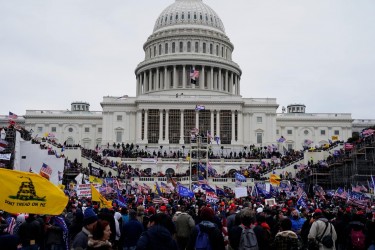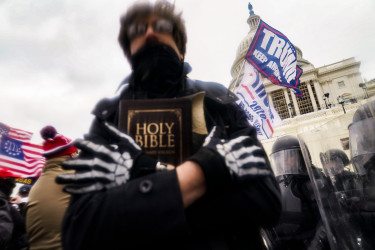While scholars warn of fascism on the one side and pundits bicker over wokeness on the other, the larger and longer view reveals how blinkered both of these assessments are. The right’s road to power does not run through street violence, mass rallies, fake news or lawless coups. The left’s weakness has nothing to do with critical race theory and cancel culture. Both claims suffer from the same shortcoming: They focus on the margins rather than the matrix.
Driving the initiatives of the Republicans and the inertia of the Democrats are two forces. The first is the right’s project, decades in the making, to legally limit the scope and reach of democracy. The second is the Constitution, which makes it difficult for the national majority to act and easy for local minorities to rule. What happened on Jan. 6 is far less significant than what happened before Jan. 6 — and what has and has not happened since then.
The conventional wisdom among journalists and scholars, recently expressed by Thomas Edsall in the New York Times, is that “democracy — meaning equal representation of all citizens and, crucially, majority rule — has, in fact, become the enemy of the contemporary Republican Party.”
Equal representation of the citizenry hasn’t become the enemy of the contemporary Republican Party. It has been the enemy for more than a half-century. Ronald Reagan opposed the 1965 Voting Rights Act from the beginning, explaining later that he believed it was “humiliating to the South.” When the act came up for its third renewal in 1982, Reagan’s lawyers in the Justice Department, led by a twenty-something John Roberts, mightily resisted it and much needed amendments to it. When it came up for renewal again, in 2006, the act nearly broke the House Republican caucus in two.
At the center of Republican opposition to the Voting Rights Act is Section 5, described by the historian J. Morgan Kousser as “one of the most innovative governmental mechanisms since the New Deal.” Section 5 stipulates that states, counties and localities with a history of discriminatory voting rules and practices must get permission or “pre-clearance” from the federal government to make any changes to an electoral “standard, practice, or procedure.” With the burden of proof falling on these jurisdictions, it is up to them to demonstrate that the intent or effect of their change is not racial discrimination.
























